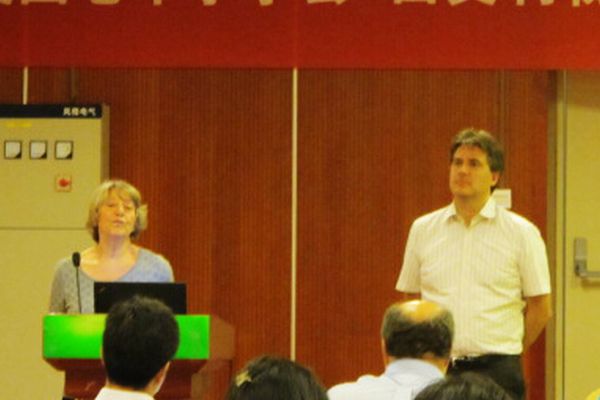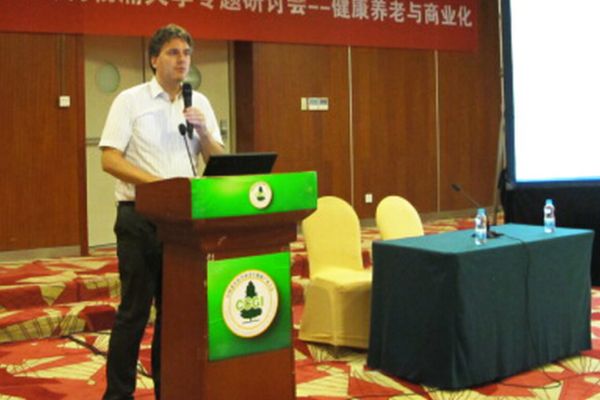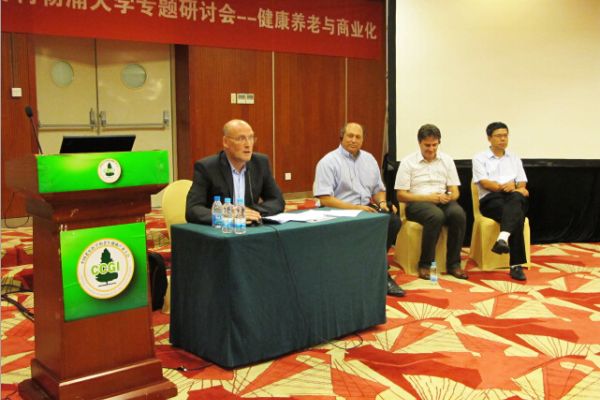13 Oct 2015
What does ageing mean for businesses around the world and how can business owners make the most of the opportunities presented by the ‘silver’ market?
These questions and more were explored at a major workshop coordinated by academic departments at Xi’an Jiaotong-Liverpool University, and held as part of a wider congress in Suzhou hosted by the Chinese Academy of Gerontology and Geriatrics.
The workshop was coordinated by XJTLU’s Department of Public Health, International Business School Suzhou, and Research Institute on Ageing and Society.
It was supported by the Gerontological Society of America (GSA), the longest running and largest interdisciplinary organisation devoted to research, education, and practice in the field of ageing. GSA president Professor Nancy Morrow-Howell, who is also the Director of the Harvey A. Friedman Center for Aging at Washington University, also attended the workshop and delivered the welcome remarks

Keynote speakers from academia and industry, as well as participants from around the world, took part in the session, which addressed the vast economic consequences of ageing populations.
Presentations by key experts focussed on ageing, technology and business, including a presentation by Professor Jiehua Lu, Deputy Director of the Center for Healthy Aging and Development Studies at Peking University, who talked about the current situation, difficulties and solutions for the health industry in China. His presentation set the stage for the other speakers and provided an overview of the contextual factors in China.
Dr David Lindeman, Director of the Center for Information Technology Research in the Interest of Society Health Initiative, shifted the focus to technology and the US context.
Dr Florian Kohlbacher, associate professor of marketing and innovation at International Business School Suzhou and founder of the XJTLU Research Institute on Ageing and Society, spoke about the business of healthy ageing, providing lessons learnt from a decade of research in Japan, the world’s most aged society.
Professor Kohlbacher also provided preliminary results from a recent project on the adoption and usage of e-health products and services in Suzhou, which he co-supervised with Professor Elmer Villanueva, Head of the Department of Public Health at XJTLU.

The project showed that usability, accuracy and price level are the principle concerns of consumers using e-health products and services in Suzhou, dwarfing issues such as service time and brand.
After the presentations, a panel discussion with simultaneous translation between Chinese and English allowed the audience to ask the speakers follow-up questions. During the discussion, Professor Kohlbacher reminded the audience that despite the importance of technology for an ageing society, it should not replace human care giving.
Ewout van der Schaft, deputy dean of International Business School Suzhou who chaired the panel discussion, said: “Businesses need to understand the implications of population ageing. IBSS prides itself on leading the way in this research area.”
Professor Villanueva emphasised that ageing was a key topic for his department and XJTLU overall. He said: “I am very pleased with the fruitful cross-departmental collaboration with IBSS and very glad to have established a strong link with a prestigious international organisation such as the Gerontological Society of America.”

Ageing-related research is an important area of work for XJTLU. The Research Institute on Ageing and Society is carrying-out cross-disciplinary research on the implications of population ageing to create innovative responses and solutions that will help China position itself as a global leader in responding to this challenging demographic shift.
On 14 - 15 December 2015, the first XJTLU research symposium on healthy ageing and society will bring together international and national experts on ageing, health and society from a large variety of disciplines to discuss their latest research, exchange ideas and hopefully spark new research collaborations.
13 Oct 2015








